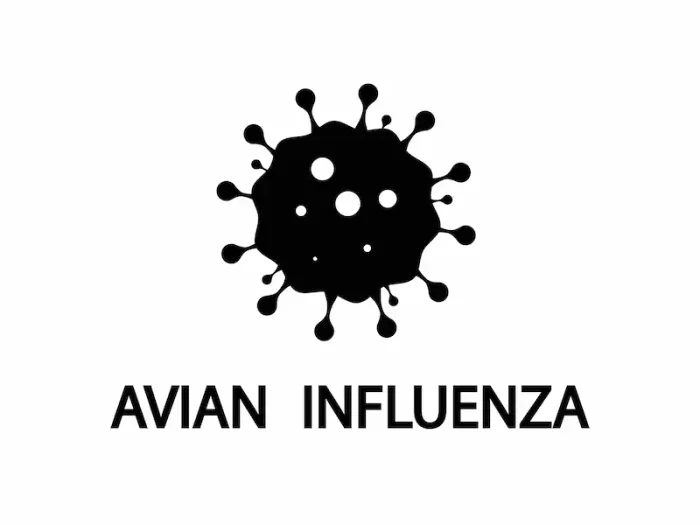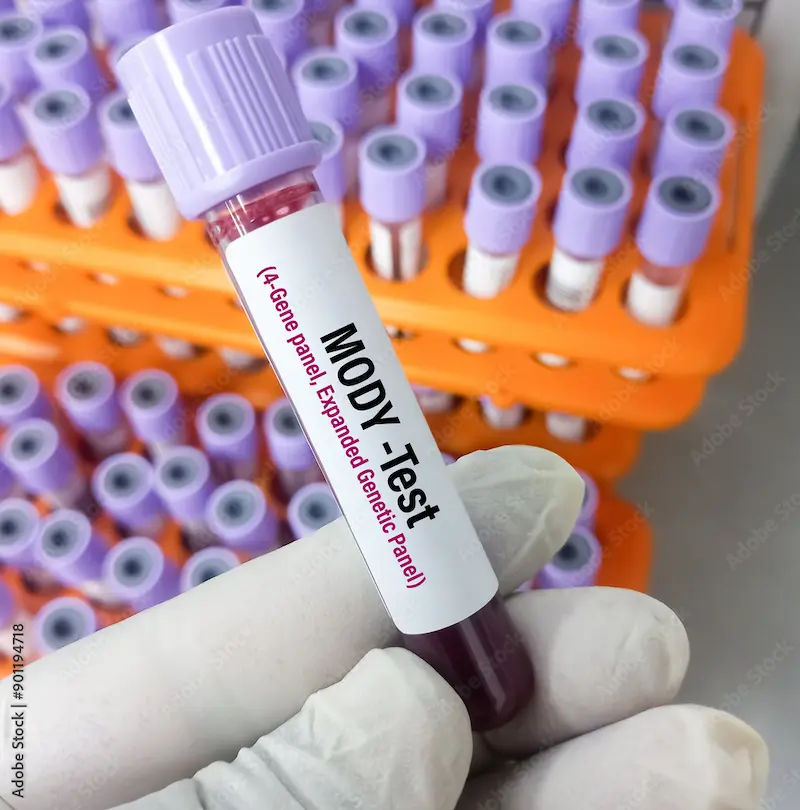Guide to Bird Flu Virus
Learn all about the bird flu virus (avian influenza), its causes, symptoms in humans, how it spreads, treatment options, and effective prevention tips.

Written by Dr. Siri Nallapu
Reviewed by Dr. Dhankecha Mayank Dineshbhai MBBS
Last updated on 13th Jan, 2026

Introduction
Bird flu. It’s a term that flashes across news headlines, often causing a ripple of concern. But what exactly is the bird flu virus, and how much of a threat does it pose to you and your family? Officially known as avian influenza, this virus primarily affects birds but can, on rare occasions, jump to humans with serious consequences. Understanding this illness is your first and most powerful step toward prevention. This comprehensive guide will demystify the bird flu virus, breaking down its transmission, symptoms, and the practical steps you can take to stay safe. We’ll move beyond the headlines to give you clear, actionable advice based on the latest information from global health authorities.
What Exactly is the Bird Flu Virus?
The Basics of Avian Influenza
Avian influenza, or bird flu, is a type A influenza virus that is naturally occurring in wild aquatic birds worldwide. It can infect domestic poultry like chickens, turkeys, and ducks, as well as other bird and animal species. These viruses are categorised as either “low pathogenic” or “high pathogenic,” based on their ability to cause disease and mortality in chickens. Most strains are low pathogenic, causing mild or no symptoms. However, some highly pathogenic strains can spread rapidly through poultry flocks, causing severe disease and high death rates.
Not All Strains Are Created Equal: H5N1 and Beyond
You might hear bird flu viruses referred to by letters and numbers, such as H5N1 or H7N9. The ‘H’ stands for hemagglutinin and the ‘N’ for neuraminidase—these are proteins on the surface of the virus that determine its subtype. There are 16 known H subtypes and 9 N subtypes. The H5N1 virus is one of the most well-known high-pathogenic strains and has been responsible for significant poultry outbreaks and sporadic human infections since it first emerged in the late 1990s. Other strains, like H7N9, have also shown the ability to infect humans. The concern with any new strain is its potential to adapt and gain the ability to spread efficiently among people.
Consult a General Physician for the best advice
How Does the Bird Flu Spread to Humans?
Primary Transmission: From Birds to People
Human infections with avian influenza are rare and almost always occur through direct contact with infected birds or their environments. The virus can be shed in the saliva, mucous, and feces of infected birds. People can become infected when the virus enters their eyes, nose, or mouth, or is inhaled. This can happen through:
• Handling infected live or dead poultry.
• Visiting live bird markets.
• Contact with surfaces contaminated by the virus.
• Slaughtering, defeathering, or preparing infected poultry for cooking.
It's important to note that you cannot get bird flu from eating properly cooked poultry or eggs. The virus is killed by thorough cooking.
Understanding the Risk of Human-to-Human Transmission
The current risk of sustained human-to-human transmission is very low. While there have been rare instances of limited spread between very close contacts (like family members), the virus has not acquired the ability to transmit easily from one person to another. This is the primary barrier that prevents widespread outbreaks in humans. Global health organisations like the WHO constantly monitor the virus for any genetic changes that might increase this risk, as that could potentially lead to a pandemic.
Recognising the Symptoms of Bird Flu in Humans
Early Signs and Symptoms
The symptoms of bird flu in humans can range from mild to severe and often resemble those of conventional seasonal flu. They typically appear within 2 to 7 days after exposure and can include:
• High fever (often over 100.4°F or 38°C)
• Cough
• Sore throat
• Muscle aches
• Headache
• Shortness of breath or difficulty breathing
• Fatigue
When to Seek Medical Attention Immediately
Some people can develop severe complications rapidly. It is crucial to seek immediate medical care if you develop respiratory symptoms and have a history of recent travel to an area with known bird flu outbreaks in poultry, or if you have had direct contact with sick or dead birds. Complications can include severe pneumonia, acute respiratory distress syndrome (ARDS), and multi-organ failure.
If you develop flu-like symptoms after potential exposure to sick birds, consult a doctor online with Apollo24|7 for further evaluation and guidance on next steps.
Diagnosis and Treatment: What to Expect
How Doctors Test for Avian Influenza
Because symptoms of bird flu mimic other influenza viruses, a laboratory test is required for diagnosis. If a doctor suspects avian influenza based on your symptoms and exposure history, they will collect a sample from your nose or throat. This sample is then sent to a specialised laboratory where they can perform specific molecular tests to identify the virus, such as RT-PCR. This precise testing is essential for initiating the correct treatment and triggering public health responses.
Current Treatment Options and Antiviral Medications
Prompt treatment is recommended for suspected or confirmed cases. Antiviral drugs have shown effectiveness in treating avian influenza infections in humans. The H5N1 virus and other strains are often treated with neuraminidase inhibitor antiviral medications like oseltamivir (Tamiflu) or zanamivir (Relenza). These drugs work best when administered early in the illness—within 48 hours of symptom onset—and can help reduce the severity of the illness, the duration of symptoms, and the potential for serious complications.
Get Your Health Assessed
Protecting Yourself: Practical Prevention Strategies
Safety Tips for Travel and High-Risk Areas
The best prevention is to avoid sources of exposure. If you are traveling to an area with known avian influenza outbreaks:
• Avoid live bird and animal markets, poultry farms, and other places where you might encounter birds.
• Avoid touching surfaces that may be contaminated with bird droppings.
• Practice good hand hygiene by washing your hands often with soap and water or using an alcohol-based hand sanitiser.
Handling Poultry and Eggs: A Safe Guide
For the general public, the risk is extremely low. However, practicing good food safety is always wise:
• Cook poultry and eggs thoroughly. Cook poultry to an internal temperature of 165°F (74°C) and eggs until both the yolk and white are firm.
• Prevent cross-contamination in the kitchen. Use separate cutting boards and utensils for raw poultry and other foods.
• Wash your hands with soap and water after handling raw poultry or eggs.
The Role of Vaccines and Future Developments
While there are vaccines approved for the prevention of avian influenza in poultry, there is no widely available vaccine for the public against bird flu viruses. However, the U.S. CDC and other global agencies have created candidate vaccine viruses (CVVs) for several bird flu viruses as a precaution. These could be used to mass-produce a vaccine for humans if a virus were to start spreading easily from person to person.
Conclusion
Staying informed about the bird flu virus is key to managing concerns and taking appropriate, measured steps for protection. While the current risk to the general public remains low, understanding how the virus spreads, recognising its symptoms, and adhering to prevention guidelines are crucial. The global health community maintains a strong surveillance system to detect and respond to any changes in the virus's behavior. By focusing on facts from authoritative sources and practicing good hygiene, you can significantly minimise any potential risk. Remember, if you have any health concerns, especially after potential exposure, seeking professional medical advice is always the best course of action.
Consult a General Physician for the best advice
Consult a General Physician for the best advice

Dr. S Vijayaraghavan
General Physician/ Internal Medicine Specialist
31 Years • MD (Gen. Med.)
Chennai
Apollo Speciality Hospitals OMR, Chennai
(175+ Patients)

Dr. Pinaki Mukhopadhyay
General Physician/ Internal Medicine Specialist
33 Years • MBBS
Kolkata
MCR SUPER SPECIALITY POLY CLINIC & PATHOLOGY, Kolkata
(25+ Patients)

E Pradheep
General Physician/ Internal Medicine Specialist
38 Years • MBBS
Bengaluru
Apollo Clinic, Sarjapur Road, Bengaluru

Dr Aakash Andgi
General Physician/ Internal Medicine Specialist
9 Years • MBBS MD
Bengaluru
Apollo Clinic, JP nagar, Bengaluru

Dr. Nilotpal Mitra
General Physician/ Internal Medicine Specialist
21 Years • MBBS, PGDGM ( Geriatric Medicine), ACMDC (an Advance course in Diabetes and cardiovascular diseases from PHFI and WHF )
Kolkata
MCR SUPER SPECIALITY POLY CLINIC & PATHOLOGY, Kolkata
Consult a General Physician for the best advice

Dr. S Vijayaraghavan
General Physician/ Internal Medicine Specialist
31 Years • MD (Gen. Med.)
Chennai
Apollo Speciality Hospitals OMR, Chennai
(175+ Patients)

Dr. Pinaki Mukhopadhyay
General Physician/ Internal Medicine Specialist
33 Years • MBBS
Kolkata
MCR SUPER SPECIALITY POLY CLINIC & PATHOLOGY, Kolkata
(25+ Patients)

E Pradheep
General Physician/ Internal Medicine Specialist
38 Years • MBBS
Bengaluru
Apollo Clinic, Sarjapur Road, Bengaluru

Dr Aakash Andgi
General Physician/ Internal Medicine Specialist
9 Years • MBBS MD
Bengaluru
Apollo Clinic, JP nagar, Bengaluru

Dr. Nilotpal Mitra
General Physician/ Internal Medicine Specialist
21 Years • MBBS, PGDGM ( Geriatric Medicine), ACMDC (an Advance course in Diabetes and cardiovascular diseases from PHFI and WHF )
Kolkata
MCR SUPER SPECIALITY POLY CLINIC & PATHOLOGY, Kolkata
More articles from General Medical Consultation
Frequently Asked Questions
1. Can I get bird flu from eating chicken or eggs?
No, you cannot get bird flu from eating properly cooked poultry or eggs. The virus is destroyed by heat. Ensure poultry is cooked to an internal temperature of 165°F (74°C) and that eggs are cooked until firm.
2. Is there a vaccine for bird flu for humans?
There is no widely available public vaccine for bird flu. However, candidate vaccines have been developed for specific strains like H5N1 as a precautionary measure and could be produced if needed for a pandemic.
3. What is the mortality rate of bird flu in humans?
he mortality rate has varied by strain and outbreak. For the H5N1 virus, the WHO has reported a historical case fatality rate of over 50% in humans. However, this may not represent the true rate, as mild cases may go undetected.
4. How is it different from seasonal flu?
While symptoms are similar, they are caused by different influenza viruses. Bird flu is a zoonotic virus that jumps from birds to humans, while seasonal flu spreads routinely among humans. Bird flu often causes more severe disease in infected people.
5. Should I be worried about bird flu?
For the general public with no contact with infected birds, the current risk is very low. The situation is monitored closely by health authorities worldwide. Practicing good hygiene and avoiding contact with sick or dead birds are the best preventive measures.





